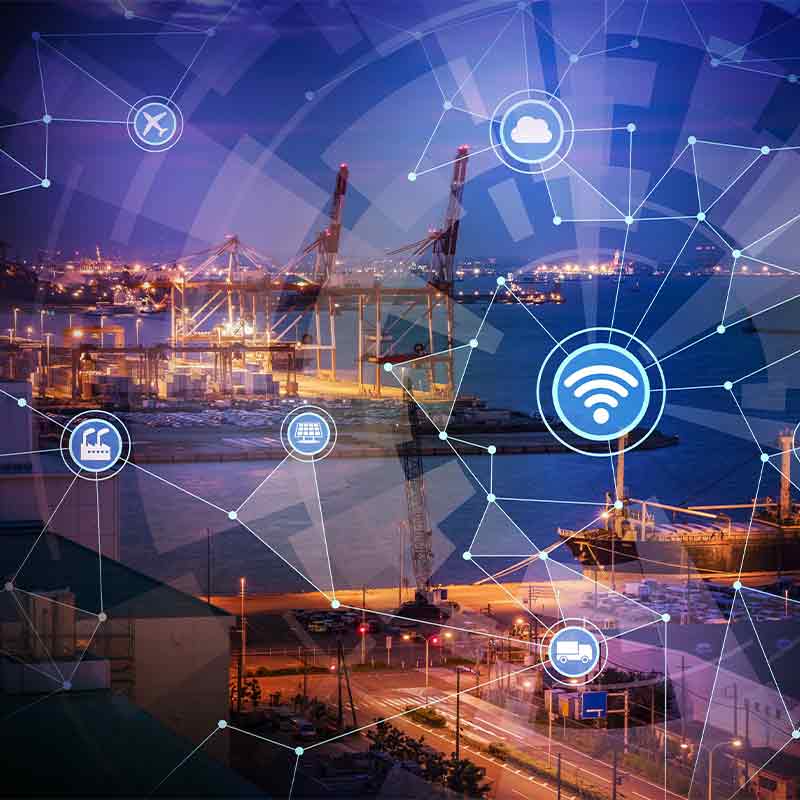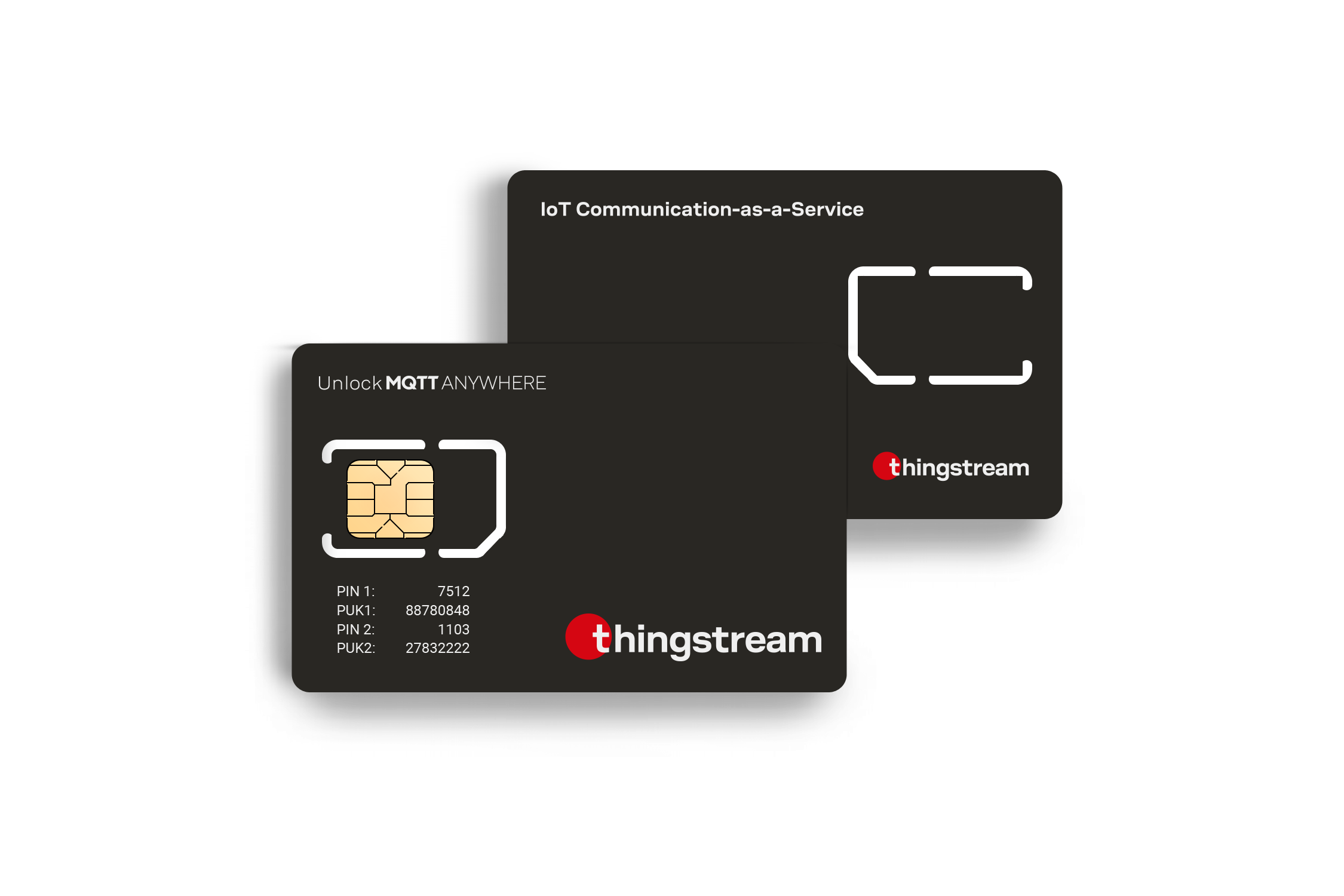Iot Remote Asset Monitoring Solution Condition Monitoring with IoT Alerts
The integration of IoT connectivity for supply chain administration has emerged as a revolutionary pattern in current years. This know-how enhances the efficiency and transparency of supply chains, allowing businesses to handle their operations extra effectively. The Internet of Things (IoT) includes a network of interconnected gadgets that collect and exchange knowledge over the internet. This connectivity is reworking the best way organizations monitor and management their entire supply chain processes.
Supply chains traditionally operated with numerous levels of handbook oversight. This approach typically resulted in inefficiencies, delays, and inaccuracies. With IoT connectivity, businesses can collect real-time knowledge from a quantity of sources, including sensors, RFID tags, and GPS devices. This data supplies insights into the status of products in transit, stock levels, and equipment efficiency. As a result, corporations could make informed choices that improve operational efficiency and scale back costs.
Real-time monitoring of products in transit is amongst the most important advantages of IoT connectivity for supply chain management. By using GPS and RFID know-how, organizations can monitor the precise location of their goods at any given time. This visibility mitigates the risks of loss and theft. Moreover, it enables better planning and coordination, in the end leading to improved supply instances and customer satisfaction.
Data gathered via IoT devices aids in forecasting and demand planning. Companies can analyze patterns and trends from historic data to foretell future wants. This predictive capability allows organizations to adjust their inventory ranges accordingly, thus stopping overstock or stockouts. Consequently, producers can align production schedules with market demand, achieving a extra harmonious move throughout the supply chain.
Role Of Smart Sensors In Iot Smart City Monitoring Solutions with IoT
IoT connectivity also enhances asset administration by providing real-time details about tools and equipment. Businesses can monitor the efficiency of their property and schedule maintenance proactively, decreasing downtime and ensuring uninterrupted operations. Predictive maintenance powered by IoT can lead to considerable savings on repair prices and forestall pricey disruptions to production processes.
In addition to operational efficiencies, IoT connectivity for supply chain management fosters collaboration across numerous stakeholders. Suppliers, distributors, and retailers can seamlessly share info, guaranteeing that everyone is aligned and informed. This shared knowledge streamlines communication and decision-making, creating a more cohesive network that may reply swiftly to any modifications in circumstances or necessities.
The environmental impact of supply chains is becoming more and more critical in at present's business panorama. Companies are underneath stress to adopt sustainable practices. IoT connectivity can assist organizations in monitoring their carbon footprint and resource consumption. By gathering knowledge on logistics and transportation, companies can optimize routes, thereby reducing gasoline consumption and emissions. This approach not only enhances sustainability but in addition improves operational effectivity.
Implementing IoT connectivity just isn't with out its challenges. Companies must spend money on know-how, infrastructure, and coaching to effectively make the most of this strategy. The costs associated with deploying IoT devices and guaranteeing cybersecurity are potential barriers. Addressing these challenges requires a strategic method that aligns the potential benefits of IoT connectivity with their organizational objectives.
Remote Monitoring Top BI Solutions for IoT Monitoring
Data privateness and safety are additionally vital issues with the growing adoption of IoT in supply chains. The more gadgets that connect to the web, the greater the risks of cyberattacks and data breaches. Organizations must prioritize robust cybersecurity measures, guaranteeing that their networks and information remain safe while enabling the total range of IoT capabilities.

Despite these challenges, the potential advantages of IoT connectivity for supply chain management are simple. Companies that embrace this know-how will doubtless achieve iot remote asset monitoring solution a aggressive edge of their respective markets. Efficiency enhancements, better customer service, and enhanced collaboration open the door to new alternatives for innovation and development.
As organizations proceed to recognize the value that IoT connectivity brings, the development is ready to hop over to here accelerate. According to trade forecasts, the number of connected gadgets will solely improve, leading to much more vital advancements in supply chain management. Embracing IoT can transform supply chains from conventional, reactive models to proactive, data-driven ecosystems that dynamically adapt based mostly on real-time information.
Role Of Smart Sensors In Iot Advantages of IoT Monitoring Systems
The journey in the direction of full IoT integration in supply chain management could also be gradual, but the course is obvious. Companies should be prepared to put cash into technology and ensure they've the right expertise and sources in place. As supply chains evolve, the necessity for connectivity and data-driven insights will turn into paramount.
In conclusion, IoT connectivity for supply chain administration represents a pivotal shift in how organizations function. With real-time knowledge, enhanced visibility, and improved collaboration, companies are better geared up to fulfill shopper calls for and navigate complexities. While there are challenges to address, the benefits of embracing IoT connectivity far outweigh the obstacles. Companies keen to innovate and adapt will thrive in this related panorama, resulting in sustainable progress and improved operational efficiency.
- Enhances real-time visibility across the availability chain by enabling devices to share information instantaneously.
- Facilitates predictive analytics to foresee supply chain disruptions and optimize stock administration.
- Enables distant monitoring of kit and property, decreasing the necessity for on-site inspections.
- Supports automated quality control processes by integrating IoT sensors that detect anomalies in merchandise.
- Improves traceability via decentralized techniques, allowing for simpler monitoring of goods from origin to vacation spot.
- Streamlines logistics operations with smart routing and automated delivery updates based mostly on real-time traffic data.
- Minimizes operational costs through energy-efficient routing and resource administration enabled by related gadgets.
- Fosters collaboration between suppliers and retailers by creating an integrated view of stock ranges and demand.
- Enhances buyer experience by offering transparency so as status and estimated supply instances through IoT connections.
- Enables speedy adaptation to market changes by allowing firms to gather and analyze data for agile decision-making.undefinedWhat is IoT connectivity in supply chain management?
(It Remote Monitoring Software)
Remote Monitoring Solutions Smart City Monitoring Solutions with IoT
IoT connectivity in supply chain administration refers to the integration of Internet of Things devices and sensors that facilitate real-time data trade across the provision chain. This connectivity enhances visibility, efficiency, and decision-making throughout the logistics course of.
How does IoT improve supply chain visibility?
- Remote Monitoring
Remote Monitoring Unlocking IoT Remote Monitoring Potential
IoT enhances supply chain visibility by offering real-time monitoring of inventory, shipments, and belongings. Sensors gather knowledge on location, temperature, and condition, allowing companies to monitor and respond to occasions proactively, decreasing delays and losses.
What are the advantages of utilizing IoT in supply chain management?
The key benefits of IoT in supply chain management include improved efficiency, value savings, enhanced decision-making, better stock administration, increased transparency, and lowered dangers associated with supply chain disruptions - Iot Remote Monitoring And Control.
Remote Monitoring Solutions Enhancing Efficiency with IoT Monitoring
What challenges may businesses face when implementing IoT of their supply chain?
Common challenges embrace integration with existing systems, data security and privacy concerns, high upfront costs, and the necessity for skilled personnel to handle and analyze the info generated by IoT gadgets.
How can IoT assist in demand forecasting?
IoT gadgets gather real-time knowledge on consumer habits and inventory levels, enabling more accurate demand forecasting. This information helps companies regulate their supply chain operations dynamically, leading to better alignment with market calls for.
Iot Global Essentials of Remote Monitoring Platforms
Are there particular industries that benefit most from IoT connectivity in supply chains?
Industries such as manufacturing, retail, logistics, and meals and beverage are among people who profit significantly from IoT connectivity. These sectors can utilize IoT to optimize operations, enhance tracking, and improve product quality.

What forms of IoT devices are generally used in supply chain management?
Iot Remote Monitoring And Control IoT Monitoring: Transforming Various Industries
Common IoT units in supply chain management embody GPS trackers, RFID tags, temperature and humidity sensors, and smart cameras. These gadgets provide crucial knowledge for monitoring assets and ensuring environment friendly operations.

How does IoT influence sustainability in supply chains?
Iot Global Cost Savings from IoT Remote Monitoring
IoT promotes sustainability by optimizing useful resource use and reducing waste. By monitoring operations in real-time, companies can minimize energy consumption, decrease carbon footprints, and improve recycling efforts throughout the availability chain.
Is information from IoT devices secure?
Remote Monitoring Using Iot IoT Connectivity for Enhanced Monitoring

While IoT devices can provide significant benefits, security remains a concern. Businesses should implement sturdy knowledge protection measures, such as encryption, safe entry controls, and regular security audits, to safeguard delicate data collected by IoT systems.